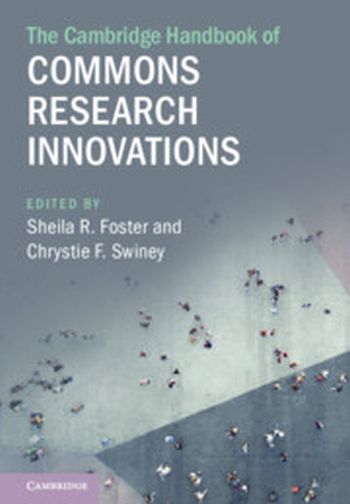
The commons theory, first articulated by Elinor Ostrom, is increasingly used as a framework to understand and rethink the management and governance of many kinds of shared resources. These resources can include natural and digital properties, cultural goods, knowledge and intellectual property, and housing and urban infrastructure, among many others. In a world of increasing scarcity and demand - from individuals, states, and markets - it is imperative to understand how best to induce cooperation among users of these resources in ways that advance sustainability, affordability, equity, and justice. This volume reflects this multifaceted and multidisciplinary field from a variety of perspectives, offering new applications and extensions of the commons theory, which is as diverse as the scholars who study it and is still developing in exciting ways.